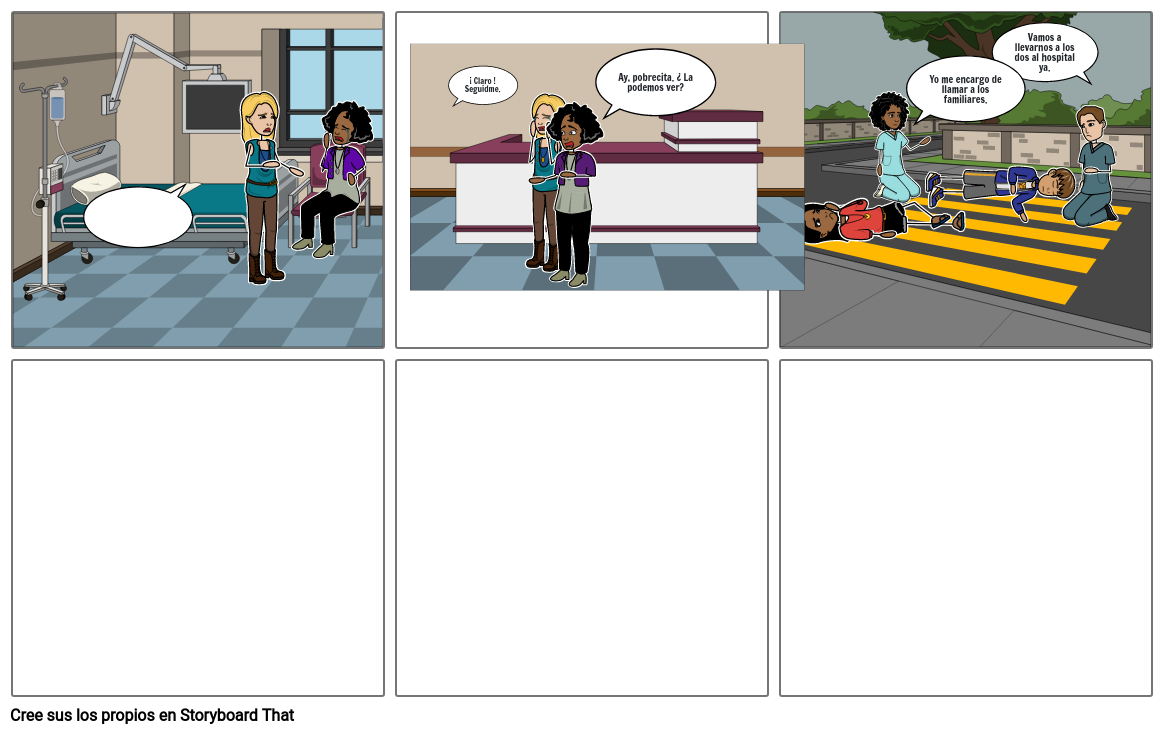Unknown Story

Testo Storyboard
- Tenemos que tranquilizarnos y esperar que dicen de las pruebas.
- ¡ Claro !Seguidme.
- Ay, pobrecita. ¿ La podemos ver?
- Yo me encargo de llamar a los familiares.
- Vamos a llevarnos a los dos al hospital ya.
Oltre 30 milioni di storyboard creati
Nessun Download, Nessuna Carta di Credito e Nessun Accesso Necessario per Provare!
